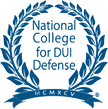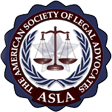Washington Misdemeanors: What You Need to Know
In Washington, misdemeanors may be simple misdemeanors or gross misdemeanors. The classification of the crime depends on the severity and potential penalties. You should understand what you’re facing if you’re charged with a misdemeanor.
Misdemeanor Classifications & Penalties
According to Washington’s Revised Code (WRC), Section 9A.20.010, misdemeanors (often called simple misdemeanors) are crimes punishable by a fine of up to $1,000 and 90 days in jail. If no penalty is specified, the act is also considered a misdemeanor.
All crimes that are not classified as felonies or simple misdemeanors are considered gross misdemeanors. The maximum punishment for a gross misdemeanor is 364 days in jail and a fine of up to $5,000.
Aggravating & Mitigating Factors in Misdemeanor Cases
Aggravating and mitigating factors can be considered by a judge when sentencing you in a misdemeanor case. These factors can increase or decrease the severity of your punishment.
Aggravating factors can increase your culpability and make you more deserving of punishment. Some examples of aggravating factors in misdemeanors include:
- Prior criminal record
- Use of a weapon
- Injury to a victim
- Vulnerable victims, such as a child or an elderly person
- Racially or religiously motivated offense
Mitigating factors are circumstances that can decrease your culpability and make you less deserving of harsh punishment. Examples of mitigating factors in misdemeanor cases are:
- Lack of a prior criminal record
- Minor role in the offense
- The guilt of the victim (the victim contributed to the crime)
- Mental health issues
- Remorse
The judge will weigh each case’s aggravating and mitigating factors to determine the appropriate sentence. The judge has the discretion to impose a sentence within the statutory range for the offense, and the judge’s decision will be based on the case’s specific facts.
Negative Effects of a Misdemeanor
A misdemeanor conviction can have several collateral effects besides your official criminal sentence. These can significantly impact your life and make it difficult to find employment, housing, and attain other opportunities.
- Difficulty finding employment or job loss
- Loss of housing
- Loss of public benefits
- Difficulty obtaining or loss of professional licenses
- Immigration difficulties or deportation
- Difficulty traveling internationally
- Difficulty getting loans and financial aid
- Difficulty adopting children
- Interference with child custody or visitation
Dealing with Misdemeanor Charges
The misdemeanor court process in Washington state generally follows the same process for felonies. However, there are some differences.
Arrest or Citation
If you are arrested for a misdemeanor, you may be taken to a police station or jail for booking. This is where you will be fingerprinted, photographed, and questioned.
You will be read your Miranda rights, which inform you of your right to remain silent, to have an attorney present during questioning, and to stop questioning if you so desire. If you are not arrested but instead receive a citation, you will likely be given a summons to appear later in court.
Misdemeanor Arraignment
At your arraignment, you will be formally charged with the misdemeanor offense. You will also be informed of your rights, including the right to an attorney, a trial by jury, and the right to remain silent. You will also be asked to enter a plea. A plea is your response to the charges against you. You can plead guilty, or not guilty.
Pre-Trial
If you plead not guilty, your case will proceed to a pre-trial hearing. This is when your attorney will have the opportunity to review the evidence against you, file motions with the court, and commence negotiations with the prosecutor. Your defense attorney will work to negotiate a favorable resolution. You may be able to resolve your case with a plea agreement and avoid trial.
Misdemeanor Trials
If your case cannot be resolved during the pre-trial stage, it will proceed to trial. At trial, the prosecution will present evidence to prove the charges against you. You will have the opportunity to cross-examine the prosecution’s witnesses and to present your own witnesses. The jury will then decide whether you are guilty or not guilty.
Misdemeanor Sentencing
If you are found guilty of a misdemeanor, you will be sentenced by the judge. The judge will consider various factors when sentencing you, including your criminal history, the severity of the offense, and any mitigating factors. Your sentence may include jail time, probation, treatment, community service, Electronic Home Monitoring (EHM), fines, and restitution to the victim.






